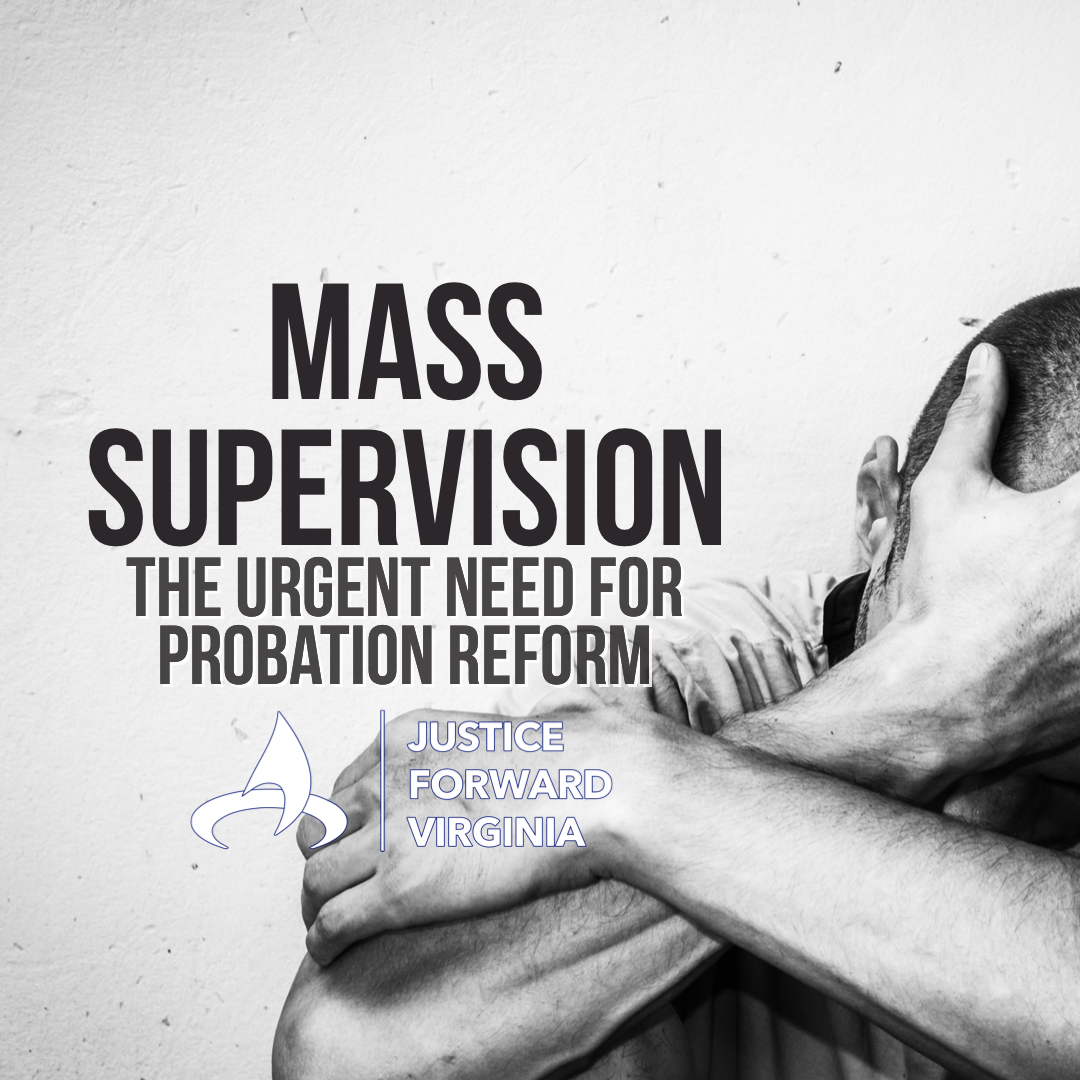Probation Reform
NEW: Click Here to Read Our 2022 Report on Probation Reform: Implementation, Interpretation and Impact
Many people have heard of “mass incarceration,” but relatively few have heard of “mass supervision,” a phenomenon that, besides being problematic on its own, is a major contributor to mass incarceration. “Mass supervision” refers to the millions of Americans who, although not in jails and prisons, remain tethered to the justice system due to community supervision such as probation and parole. Although probation was originally intended to help people successfully transition from incarceration to the community, it has often served as a no-win situation that ensures their failure, and return to prison, is a burden on an already broken system, and fails to serve as the crutch for re-entry as it was “intended”. With lengthy supervision, onerous restrictions, constant scrutiny, 51% of VA prison admissions were a result of parole or probation violations in 2016. Probation SHOULD be about helping people. Yet, too often it’s used as an excuse for the system to punish people for missing appointments or positive drug tests. It’s time to reform our broken probation system and bring an end to mass supervision.
In the 2021 Legislative Session, the General Assembly passed HB 2038, a bill sponsored by Del. Don Scott. On probation, something as minor as oversleeping and missing a drug test can result in the imposition of years of back-up prison time. It also keeps perfectly law abiding citizens tethered to the court system and unable to move forward with their lives, well after they paid their debt to society. This sensible probation reform limits probation terms and the amount of time that can be imposed for probation violations (especially “technical” violations of the conditions of probation).
The new law limits the length of probation a person can receive. Virginia had been one of 7 states that didn’t have limits.
Probation for misdemeanors is limited to 1 year.
Probation for felonies (with some exceptions) is limited to 5 years.
The law also establishes limits for the amount of jail time a person can be sentenced to for technical violations of parole. These are violations, such as missing a meeting with a parole officer or failing to report the loss of a job, that are not new violations of the law.
No jail time for the first technical violation
No more than 14 days in jail for a second technical violation
Data compiled by Americans for Prosperity gives an in-depth look at the evidence surrounding negative impacts of probation policy in our state, making it clear why this new law will be so impactful.
Community Supervision in Virginia:
59,332 people are on probation in Virginia – more than double those who are incarcerated in our state prisons.
In Virginia, the recidivism rate for those placed on probation or parole is less than those who were in our state’s prisons.
The average length of a probation term in Virginia has increased by more than 50% since 2000, even though the composition of crimes being convicted has neither become more serious or changed in nature.
Drug offenses, larceny, and fraud were the top three crimes individuals were convicted of in 2000 and they remain the top three in recent years.
More than half of those admitted to our state’s prisons and more than a third of those incarcerated on any given day are there for violating the terms of their supervision.
While most are there for committing a new offense, many are there for technical violations like being late to a meeting or an inability to pay a supervision fee. Incarcerations for technical violations cost our state $37 million each year.
The cost to incarcerate an individual in Virginia continues to climb. During 2020, the annual cost to incarcerate someone in a state prison was $33,994 – an increase of 5.7% over 2019 alone.
Supervising someone on probation costs an average of only $1,377 per year.
Comparing Virginia Nationally:
The national average for probation terms is 10% lower than Virginia’s state average and has declined in the past 20 years.
In fact, 21 states decreased their average probation term length since 2000 – including states like Georgia, Louisiana, and North Dakota.
Virginia is an outlier on its probation term laws. The Commonwealth is one of only five states that do not impose any cap on probation terms for misdemeanors and one of only seven for felonies.
Evidence-Based Probation Policies:
Neither intense supervision conditions nor long terms of supervision have been found to significantly improve public safety. Some research has actually found that these result in more technical violations, more individuals absconding from supervision, and higher rates of incarceration.
Most re-offenses or re-arrests occur within the first two years of someone's community supervision term.
Research released just last month showed that 90% of people who go their first year without being arrested, could have received shorter supervision terms without any impact on public safety or recidivism.
Four keys for effective community supervision:
Supervision conditions are tailored to the individual.
Sanctions for any violations are swift, certain, and graduated.
Incentivize positive behavior and the completion of recidivism-reducing programs.
Establish guidance and tools that encourage judges to impose evidence-based community supervision terms.



